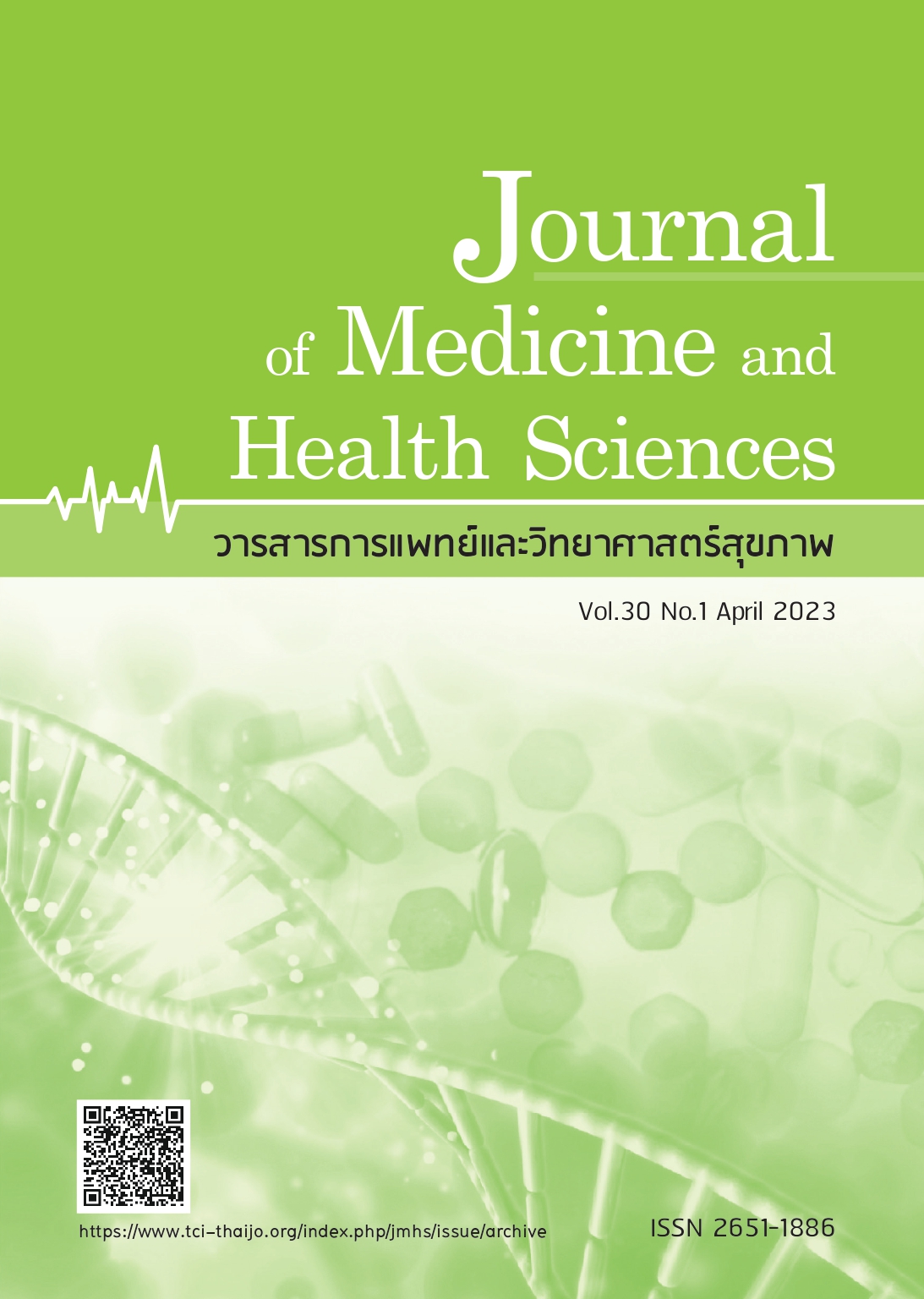Attitudes and confidence in the medico-legal work of general practitioners in upper southern region of Thailand
Keywords:
forensic medicine, attitudes, confidence, general practitionerAbstract
Performing medico-legal work requires skilled personnel. Because of an insufficient number of forensic doctors in Thailand, general practitioners play a major role in medico-legal work and have become the main group of doctors to provide medico-legal work for the public. The Medical Council of Thailand introduced the Standards for Practice in the Medical Profession 2012 with regard to medico-legal cases. This study aimed to assess the confidence and work attitudes of general practitioners in medico-legal work to study the problems, obstacles, and factors related to their confidence, work attitudes and proposal of solutions. The target population of the survey comprised 256 individuals in the upper southern region of Thailand. The data were collected through survey questionnaires and analyzed using logistic regression statistics. The survey results showed that 132 physicians (51.6%) had a moderate level of confidence in medico-legal work. A total of 83.6% had work attitudes in medico-legal work at the moderate to the highest level of agreement. Gender, age, workplace Characteristics, and teaching and learning of forensic medicine courses were factors associated with confidence in medico-legal work by general practitioners; challenging topics of practice included sexual abuse, writing death certificates, and being an expert witness in court. Therefore, they ensure that general practitioners perform work is involving the judicial process.
References
The Medical Council of Thailand. Number
of specialists in each branch (approved
for certificate) from 2005 to 2016.
Report of information on the number of
doctors, dentists, by certification of
expertise of government officers under
health region 11 (December 30, 2016).
Office of Public Health Administration.
Forensic operation situation. Knowledge
management. http://kmops.moph.go.th/
index.php/km-test/2012-09-19-04-17-00/
-2013-07-24-07-19-31#_ftn6; Accessed
December 2020.
The criminal procedure code B.E. 2477
(1934).
Act on the assignment of officers to the
autopsy according to section 148 (3) (4)
and (5) of the Criminal Procedure Code,
Royal decree to extend the period of
enforcement of section 7 of the criminal
procedure code amendment act (No. 21)
B.E. 2542, (2007).
Royal decree to extend the period of
enforcement of Section 7 of the criminal
procedure code amendment act (No. 21)
B.E. 2542, 2012.
The Medical Council of Thailand.
Information of doctors who have been
approved - Certificate from the Medical
Council 1964-2016.
Boonsak H. Level of confidence and
difficulty from medical student’
perspective to practice forensic medicine:
Pre- and post- class evaluation. TCA
;39:24-9. (In Thai)
Tansrisawad N, Vongpaisarnsin K,
Jongprasartsuk K, et al. Forensic
performance of medical intern. Forensic
Leg Med 2007;6:11-14.
Sithicharoon W. The medicolegal workload
of interns graduating from faculty of
medicine, Srinakharinwirot University in
the first year internship training program.
J Med Health Sci 2011;18:68-77. (In Thai)
Suwanchasri P, Choosakoonkriang S,
Supaluknari S, et al. Understanding of
ambulatory and emergency room nurses
at Phramongkutklao hospital on forensic
and forensic evidence. Veridian E Journal
;3:1-12. (In Thai)
Mokhtar M, Azab SM, Hassan S, et al. Study
of handling of medico-legal cases in
governmental hospitals in Cairo. J Forensic
Leg Med 2018;60:15-24.
Nusri-un N, Khunkitti W. Attitude of
undergraduate medical students (6th year)
Faculty of Medicine. Srinagarind Med J
;29:401-8.
Jones RM. Getting to the core of medicine:
Developing undergraduate forensic medicine
and pathology teaching. J Forensic Leg
Med 2017:52:245-51.
Mardikar PA, Kasulkar AA. To assess the
need of medicolegal education in interns
and residents in medical institution. J Evol
Med Dent Sci 2015:4:2885-90.
Kuchewar SV, Puppalwar PV, Vagha J.
Effectiveness of didactic lecture and
demonstration in improving the competency
interns in writing injury certificate. IOSR
;15:125-9.
Raharjanti NW, Purwadianto A, Soemantri
D, et al. Self-confidence in conducting
forensic psychiatric evaluations among
general psychiatrists in Indonesia. Heliyon
;7:e08045.
Dursun OB, Demirgören BS, Gökcen C, et
al. Forensic child and adolescent
psychiatry: From field experiences to
education standards. J Forensic Leg Med
;21:17-21.
Abdalla-Filho E, Bertolote JM. Forensic
psychiatric systems in the world. Braz J
Psychiatry 2006;28:s56-s61.
Downloads
Published
How to Cite
Issue
Section
License

This work is licensed under a Creative Commons Attribution-NonCommercial-NoDerivatives 4.0 International License.



